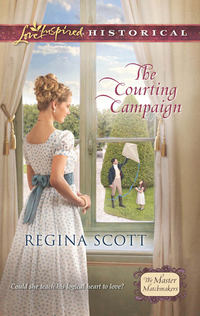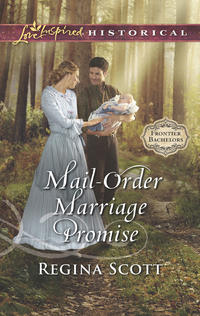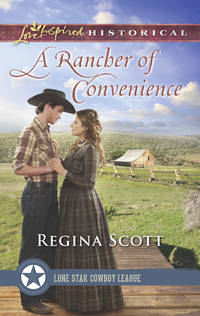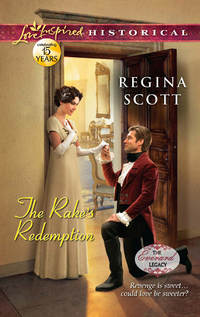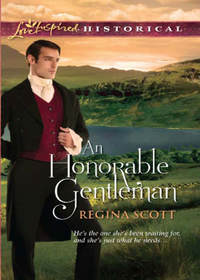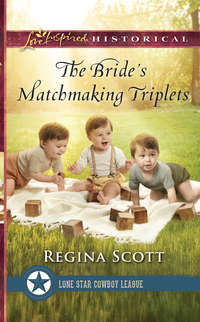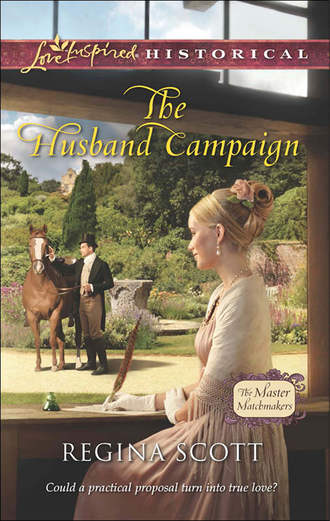
Полная версия
The Husband Campaign

A Marriage of Necessity
The moment John, Lord Hascot, encounters a young woman sheltering in his abandoned stable, his future is sealed. To prevent scandal—and protect Lady Amelia Jacoby from her parents’ ire—he must propose. John’s ability to trust vanished when his former love married his twin brother. Yet he offers Amelia everything she could want—except affection.
Amelia sees John’s true nature shine through when he cares for his horses. But the brooding aristocrat seems determined to keep her at arm’s length. Little by little Amelia will turn Hollyoak Farm into a home, but can she turn a marriage of convenience into a joyful union?
The Master Matchmakers: Wedding bells will ring when downstairs servants play Cupid for upstairs aristocracy
“I married you, Amelia.
I will honor our vows.”
How could she help him understand? Amelia stood and approached him. “And if you cannot? ‘Forsaking all others,’ the rector said. Your wife is to have all your love and devotion.”
“And a husband should have all his wife’s,” John replied. “Do you tell me you’ve held nothing back?”
She stiffened. “No, nothing! I’ve never loved another.”
“And do you claim to love me?”
Amelia swallowed, her gaze falling to the black-and-green carpet even as she halted a few feet from him. “Perhaps not yet.” Her voice sounded so small. “But I’m trying.”
He moved to close the distance between them and touched her cheek, drawing her attention back to his face. Standing so close, she could see that gold flecks danced in the dark eyes, as if some part of him still clung to light, to hope.
“I know you are trying, Amelia,” he murmured. “You’ve turned this place into a home. You may well have saved Firenza’s life. I admire your efforts.”
A tear slid down her cheek. “Admiration is not love.”
REGINA SCOTT
started writing novels in the third grade. Thankfully for literature as we know it, she didn’t actually sell her first novel until she learned a bit more about writing. Since her first book was published in 1998, her stories have traveled the globe, with translations in many languages, including Dutch, German, Italian and Portuguese.
She and her husband of over twenty-five years reside in southeast Washington State with their overactive Irish terrier. Regina Scott is a decent fencer, owns a historical costume collection that takes up over a third of her large closet, and she is an active member of the Church of the Nazarene. You can find her online blogging at www.nineteenteen.blogspot.com. Learn more about her at www.reginascott.com, or connect with her on Facebook at www.facebook.com/authorreginascott.
The Husband Campaign
Regina Scott

www.millsandboon.co.uk
A new commandment I give you: Love one another. As I have loved you, so you must love one another.
—John 13:34
To my dear Kris, who knows what it’s like to rearrange a life for those you love, and to the Lord, who is so much better at arranging things than I’ll ever be.
Contents
Chapter One
Chapter Two
Chapter Three
Chapter Four
Chapter Five
Chapter Six
Chapter Seven
Chapter Eight
Chapter Nine
Chapter Ten
Chapter Eleven
Chapter Twelve
Chapter Thirteen
Chapter Fourteen
Chapter Fifteen
Chapter Sixteen
Chapter Seventeen
Chapter Eighteen
Chapter Nineteen
Chapter Twenty
Chapter Twenty-One
Chapter Twenty-Two
Dear Reader
Questions for Discussion
Extract
Chapter One
Hollyoak Farm, Peak District, Derbyshire, England
July 1815
Why was the most beautiful woman of his acquaintance sleeping in his stable?
John, Lord Hascot, pushed a lock of rain-slicked dark hair out of his eyes and raised his lantern to peer more closely through the shadows. He hadn’t visited the crumbling, thatched-roof outbuilding near the River Bell since he’d first purchased the Derbyshire property five years ago. He and his horse Magnum wouldn’t be out this direction now if his horse Contessa hadn’t gone missing. Only a chance late-afternoon thunderstorm had driven him to seek shelter.
He hadn’t expected to find the place inhabited, and by Lady Amelia Jacoby, daughter of the Marquess of Wesworth, no less. Even if he hadn’t recognized the plum-colored riding habit of fine wool, he would have known those elegant features, that pale blond hair. In the light from the lantern, he could see golden lashes fanning her pearly cheeks.
He’d never mastered the rules of London Society, but he was fairly certain they didn’t cover how to properly react to a lady found sleeping in the straw. Some might expect him to take Magnum out in the rain from the opposite stall where he’d made his horse comfortable and leave her to her peace. He rejected the idea. For one, he refused to mistreat Magnum. For another, how could he call himself a man and abandon a defenseless woman in a storm?
John snorted. What, was he being chivalrous? He’d thought that habit long broken. He ought to wake her, order her to take her troubles elsewhere. Lady Amelia’s concerns were none of his affair.
The storm made the decision for him. Thunder rolled, shaking the stable. With a squeal of fear, a white-coated mare threw up her head from the next stall. With a cry, Lady Amelia jerked upright. It was either comfort her or her horse.
He had more faith in his ability to comfort the horse.
As she climbed to her feet, he handed her the lantern, then turned to the other stall before she could question him.
“Easy,” he murmured, moving slowly toward the mare. He kept his muscles loose and his face composed.
Out of the corners of his eyes, he saw Lady Amelia staring at him. He didn’t dare take his gaze off the mare. He stroked her withers, murmured assurances in her ears. He could feel the horse relaxing, settling back into the stall.
Turning, he found Lady Amelia’s pretty mouth hanging open. Very likely no one had ever favored her horse over her.
Then her eyes widened in recognition. “Lord Hascot?”
John inclined his head. “Lady Amelia.”
Lightening flashed, and she glanced up with a gasp. John came around the wall before thinking better of it.
“Easy,” he said, putting a hand on her arm and taking the lantern back from her before she dropped it in the dry straw. “It’s just a storm.”
She nodded, drawing in a longer breath this time as if trying to settle herself, as well. Odd. He could feel the dampness in the wool of her habit, yet the mare had been dry, and now he noticed a sidesaddle slung over the low wall separating the stalls. Had she seen to her horse’s comfort before her own?
“Forgive me,” she said. “I shouldn’t be so timid. I simply wasn’t expecting such a storm. Will it pass soon, do you think?”
The quick recitation sounded breathless. He couldn’t blame her if she was nervous. Very likely he wasn’t the most comforting sight to a well-bred young lady. He didn’t bother with navy coats and cream trousers when working. His tan greatcoat covered a rough tweed jacket and chamois breeches that were more practical for a horse farm. And he’d been told more than once that his black hair and angular features could be intimidating. Particularly when he scowled.
He could feel himself scowling.
“Summer rains generally pass quickly in the peaks,” he told her. “Best to wait it out.”
She nodded, then hurried to the other stall. “Did you hear that, Belle?” she murmured, stroking the mare’s mane. “We’ll just wait a moment, and then we’ll be able to go back to Lord Danning’s. There’s my sweet girl.”
She talked to her horse as if the mare was a person. She might be the only one besides him who treated a horse like a friend, but that didn’t mean she wasn’t the typical Society miss, self-absorbed, fixed on marrying the finest. She would have no use for a country baron, which was all for the best.
“Why are you here, Lady Amelia?” he asked, locating a nail in the beam above his head and hanging the lantern from it.
Her hand fell away from Belle, but she didn’t look at him. “I was caught in the rain and sought shelter.”
In an old building that contained only straw left over from the last cutting? And she stated the fact carefully, as if unwilling to offer more information. Yet he wanted more. He wanted to understand her as he understood his horses. “Where is your groom?”
She met his gaze, arching delicate brows more golden than the hair gathered in a bun behind her head. “I haven’t needed a groom when riding since I was five, sir.”
Neither had he. Yet the rules were different for women. That much he knew. “Even so far from Lord Danning’s lodge?” he argued. “He’s still hosting that house party, isn’t he?”
“Yes,” she said, so faintly he had to move closer to be certain. “Yes,” she repeated with more conviction, as if to forestall other questions. “We visited your farm early in the stay, so I expect the party to last another week.”
He could not help remembering that visit. He didn’t care for people who came to visit his farm merely to ogle the horses, with no true concern for the animals’ well-being. That sort of visitor reminded him of the shallow Society he had left behind when he’d exiled himself to Hollyoak Farm two years ago. Then he’d wanted only to escape, away from the woman he’d loved, away from the brother who’d betrayed him. But he’d known Whitfield Calder, Earl of Danning, since they’d been boys together at Eton. Calder understood the value of a good horse, and something about his friend’s note requesting a visit had hinted of despair. John knew something of despair. He could not be the agent to visit it upon another, nor would he walk away without attempting to resolve it. So he’d agreed to the visit, and five women and four men had descended upon him, expecting entertainment.
He was never entertaining.
His guests, to his surprise, had been. Over the years, he’d learned to watch people, to know what he might expect from them, to be prepared to respond. A man who insisted on riding with spurs was often a man who mistreated his horses. There was never enough gold for John to sell to him. And a lady who fluttered her lashes and smiled behind her fan was to be avoided at all costs. She was too much like the woman who’d preferred his brother to him.
Lord Danning’s lady visitors were not like that. Two were older wives, one with a doting husband in tow. The other three were clearly eligible misses, and unless he was off his game, their quarry was the earl himself. Indeed, Danning seemed to have his hands full with an outspoken redhead.
And choosing the redhead, John had thought at the time, was a mistake. He knew bloodlines—strength in the limbs and a loyal heart—would tell in a person’s behavior, and it was clear to him which lady had those traits in abundance.
Lady Amelia Jacoby.
She’d been so far above the others that John could only wonder why she was even part of the group. He wondered the same thing now. Had she set her heart on marrying Danning and been so crushed when he preferred another that she’d run away? The drops he saw glistening on her cheeks now that he was closer could as easily be from tears as rain. Why else would a woman who had everything—family, wealth, beauty—cry herself to sleep?
“Has Lord Danning made his decision, then?” John asked.
She drew herself up. “I am no gossip, sir. You would have to ask the earl that question.”
She might not be a gossip, but she had answered the question. The stiffness in her shoulders said Danning had chosen a bride, and it wasn’t her. Why should that fact please him?
Thunder rumbled again, drawing nearer. She set about soothing Belle once more. John glanced at the big stallion across the way, and Magnum raised his head as if with pride. He trusted John to care for him, whatever happened. And John would never let him down.
At the moment, however, he could do nothing more for the horse. John knew Magnum had eaten plenty earlier that day, for rich pastures surrounded the farm. As soon as the rain let up, John could send Lady Amelia on her way and take Magnum back to the main stables and bed. With any luck, the others would have found Contessa by now. He had never met a horse who knew more ways to escape a fenced pasture, or one more determined to do so. Normally his men kept an eye on her, but a new groom had been preoccupied with learning his duties, and the mare had slipped away.
Now lightning set shadows in sharp relief, and he saw Lady Amelia shudder. “You would be wise to sit down,” he advised.
She glanced about as if trying to determine where. What, did she think stables came with gilded chairs or cushioned benches? To John’s mind the most likely spot to sit was on an old grain bin along the back wall. She must have reached the same conclusion, for she went to settle her skirts about her on the bin as if ready to pour tea.
“Won’t you join me, my lord?” she asked, patting the other side of the wooden slats.
She was only being polite. He could not conceive that she would truly wish his company. But he moved closer and convinced himself to sit beside her. Through the musty scent of earth and straw came the incongruous perfume of orange blossoms. Was that the scent of her hair? Surely it was poor manners to bury his nose in the silky-looking tresses as if they were a feed sack. Yet some part of him was tempted to do just that.
“I didn’t realize this was your property,” she said by way of conversation. “How far do your holdings stretch?”
It was an expected topic, and a gentleman was supposed to prose on at great length, he was certain. He didn’t prose. “Far enough to provide food and a good run,” he replied.
“I’m sure that must be very gratifying for your horses,” she said. “What brought you out in the storm, my lord?”
Thunder boomed, and she shuddered again. In fact, he could feel her least movement, the moment she yawned behind her hand, the shiver that went through her. Was she cold? Hungry?
Whatever you did for the least of my brothers, you did for me.
The remembered verse demanded his attention. But he couldn’t believe the Lord would answer a prayer half formed. He hadn’t answered any of John’s prayers since before his brother had died.
Still, John pulled his greatcoat from his shoulders and draped it around her.
“Oh, Lord Hascot, I couldn’t,” she protested.
“Take it,” John insisted. “I must see to my horse.”
He slid off the box and started forward, but he couldn’t help glancing back at her. Her fingers, as long and elegant as the rest of her, clutched at the wool as she pulled it closer. Her sigh of thanks was as soft as a kitten’s.
Something inside him melted.
John lifted his head, turned his back on her and forced himself to march to Magnum’s stall. His horse eyed him.
“Don’t start,” John said. He sank onto the straw and put his back against the stone wall. Drawing up his knees, he crossed his arms over the top of his chamois breeches.
He didn’t have to speak with Lady Amelia, tend to her like a nursery maid. He’d play the gentleman and protect her, but nothing more. He’d already had his heart carved from his chest by a beautiful woman who’d claimed allegiance. He wasn’t about to offer the knife to another, even the lovely Lady Amelia.
* * *
Amelia didn’t remember falling asleep. Certainly, she knew it her duty to keep Lord Hascot company, though he had abandoned hers. She tossed out a few polite questions, all of which were met with terse responses from the other stall. She might have thought she had offended him, only he’d been as short with everyone else when she’d visited his farm with Lord Danning a few days ago. Apparently Lord Hascot did not like people nearly as much as he liked his horses.
But one moment she’d been yawning on the grain bin, and the next she was waking up on a bed of straw. She frowned at the change and couldn’t help wondering how she’d reached this spot.
Then the day’s events rushed back at her. She’d been at Fern Lodge keeping Mr. Calder busy so her new friend Henrietta Stokely-Trent could chaperone her other new friend Ruby Hollingsford on an outing with their host, Lord Danning. She thought she’d done rather well to follow Mr. Calder’s instructions and affix a creature of feather and horsehair he called a fly onto a brass hook and toss it into the river by way of a long, jointed pole. But Mr. Calder had forsaken his fishing lesson to search for Henrietta, and Amelia had been disappointed with herself for failing to keep him occupied and away from the courting couple.
Her disappointment was nothing to how her mother had reacted.
“And why are you keeping company with Mr. Calder in any regard?” she’d demanded after she’d found Amelia changing into her riding habit with the idea of going after the group. “He is the son of a second son, a nobody. We came here for Danning.”
Her mother had come for Danning. Lady Wesworth had decided the wealthy earl held promise for her daughter. Amelia had had hopes Lord Danning might have the makings of a good husband. He was kind, considerate and affable, everything her father was not. It had been rather exciting to be one of three women invited to a house party to determine which was best suited to be his bride. But it was quickly evident that he favored Ruby Hollingsford, and why not? Ruby was outspoken, fearless, bold.
Everything Amelia was not.
But some of Ruby’s boldness must have rubbed off, for Amelia had answered her mother, “I do not intend to marry Lord Danning. If I marry, I will marry for love.”
Her mother had puffed up like a thundercloud gathering. It was truly a fearsome sight, and one Amelia had witnessed only a few times in her life and never with good results.
“Your father will have something to say about that,” her mother had threatened.
The subsequent argument had so overset Amelia that she’d run for the stable at Fern Lodge, called for Belle and ridden as far and as fast as she could, seeking only escape.
Escape from a mother who could not understand.
Escape from a father who could not care.
Escape from expectations she could not meet.
Only when she’d felt the rain cooling her tears had she sought shelter, which was where Lord Hascot had found her.
She sat up, and his greatcoat slid down her form.
“Lord Hascot?” she asked, climbing to her feet and tucking her riding train up over one arm.
The door of the stable stood open, a shaft of sunlight stabbing through the darkness. A man stepped from the shadows into the beam of light. She recognized him immediately—that thatch of midnight-black hair, the sharp planes of his features, the still way he held himself as if ready for anything.
“Easy,” he said. “There’s no need for concern.”
Oh, there was every reason for concern. She knew what must happen next. If she hoped for any peace, she would have to apologize to her mother. She had long ago learned the many ways to turn criticism into commendation.
Unfortunately, this time would be more difficult. She knew what her mother wanted, what her father expected. They insisted that she marry a wealthy, titled gentleman who would bring further acclaim to the name of Jacoby, the House of Wesworth. No amount of positive thinking, prayer or discussion had changed their minds.
But wealthy, titled bachelors of marrying mind, she had learned, were not at all plentiful, and the competition to secure them was stiff. While she’d enjoyed the glittering balls, the witty conversations that were part and parcel to a London Season, she had not liked participating in the marriage mart. Men were quick to praise her beauty, but their attentions seemed shallow.
Indeed, it was rather degrading to have to parade herself, gowned in her best, hair just so, smiling, always smiling. Sometimes she felt as if she was one of the horses at Tattersalls, the famed horse auctioneers in London. She would not have been surprised if one of the gentlemen asked to examine her teeth!
“Thank you for your thoughtfulness, my lord,” she told Lord Hascot. She bent, retrieved his greatcoat and held it out to him. “And thank the Lord the storm has ended.”
He came forward and accepted the coat as solemnly as if it were a royal robe. “You’ll want to be on your way, I suspect.”
“Yes, thank you.” She slipped into the box next to hers and reached for Belle’s headstall, which was hanging from a hook at the end of the box. “My mother will be worried.”
“I sent word to Fern Lodge this morning,” he said.
Her fingers froze. Indeed, she was surprised she could even blink. “This morning?”
“It is past dawn,” he said. “One of my grooms just came in search of me. You slept through the night.”
She clutched the leather of the reins and managed to turn and look at his scowling face. “And where did you sleep?”
“I didn’t. I was over there.” He lifted his chin toward the far wall. “You were not disturbed.”
She nodded. She had to nod, for every part of her was shaking. She’d spent the night alone with a gentleman. It didn’t matter that nothing untoward had happened. It didn’t matter that he had merely kept watch over her from the opposite side of the stable.
She was ruined.
Ruined.
No one of consequence would offer for her now. All her father’s expectations, all her mother’s hopes for an alliance with a highborn family were utterly, irrevocably dashed.
She was free!
Thank You, Lord!
Her joy was singing so loudly she almost missed hearing Lord Hascot say, “I will, of course, do the expected and offer for your hand.”
Chapter Two
What could possibly have forced those words from his mouth? John had known he was taking a chance by staying with her. He’d expected one of his staff to come looking for him long before dawn. But his men had all assumed he was out searching as they were for Contessa amidst the pouring rain. John had already sent the groom back to the house with Magnum and instructions to contact Fern Lodge, for very likely the Earl of Danning was equally concerned for his lost guest, and her mother must be frantic.
Lady Amelia looked nearly as frantic, standing before him, gaze flickering about the old stable as if she hoped to spy a stray chaperone perched in the corner. She knew the penalty for spending the night with him, even on the opposite side of the stable. Yet he had no interest in bringing a near stranger to Hollyoak as his wife. He’d worked hard to make this farm the best in England. A Hascot colt was widely recognized as the mark of a prosperous man. Having a wife would be little asset there.
As for preserving the line, at times he was certain the idea was inadvisable. He knew weak stock when he saw it. Perhaps a long-lost cousin of stronger stuff could be found to take over the barony when John died without issue.
So why had he just made the ultimate sacrifice and offered this woman a place at his side?
“How very kind of you, Lord Hascot,” she said, interrupting his thoughts and pausing to bite her petal-pink lip a moment as if choosing her words with care. “But there’s really no need. You were merely being a gentleman to watch over me during the storm.”


